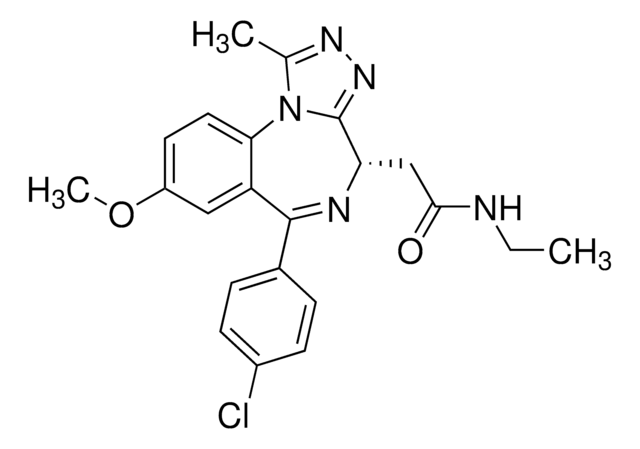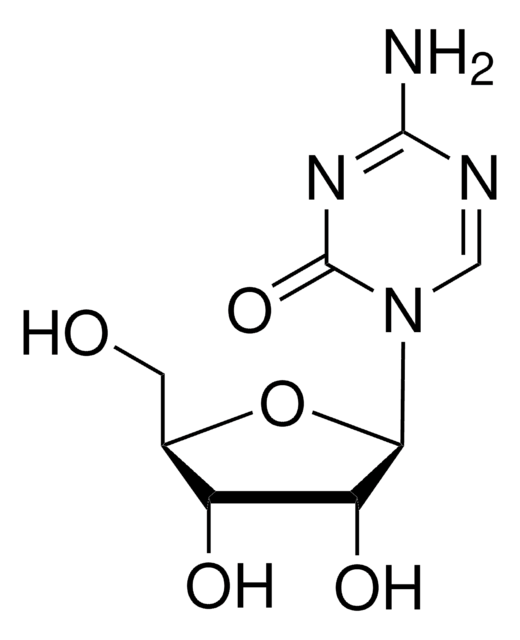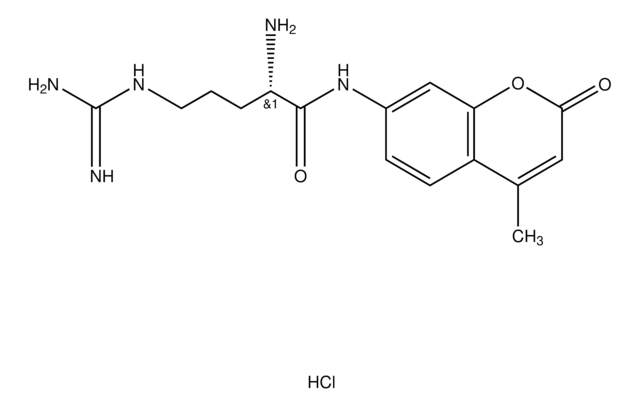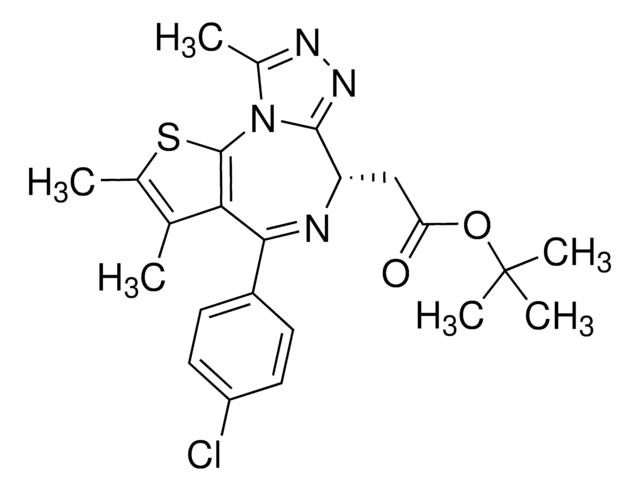SML1276
BAZ2-ICR
≥98% (HPLC)
Sinónimos:
4-{4-(1-Methyl-1H-pyrazol-4-yl)-1-[2-(1-methyl-1H-pyrazol-4-yl)-ethyl]-1H-imidazol-5-yl}-benzonitrile
About This Item
Productos recomendados
Quality Level
assay
≥98% (HPLC)
form
powder
color
white to beige
solubility
DMSO: 10 mg/mL, clear
storage temp.
2-8°C
SMILES string
CN(N=C1)C=C1CCN2C=NC(C3=CN(C)N=C3)=C2C4=CC=C(C#N)C=C4
InChI
1S/C20H19N7/c1-25-12-16(10-23-25)7-8-27-14-22-19(18-11-24-26(2)13-18)20(27)17-5-3-15(9-21)4-6-17/h3-6,10-14H,7-8H2,1-2H3
InChI key
RRZVGDGTWNQAPW-UHFFFAOYSA-N
Categorías relacionadas
Biochem/physiol Actions
To learn about other SGC chemical probes for epigenetic targets, visit sigma.com/sgc
Features and Benefits
Other Notes
Related product
signalword
Danger
hcodes
Hazard Classifications
Acute Tox. 3 Oral
Storage Class
6.1C - Combustible acute toxic Cat.3 / toxic compounds or compounds which causing chronic effects
wgk_germany
WGK 3
flash_point_f
Not applicable
flash_point_c
Not applicable
Elija entre una de las versiones más recientes:
Certificados de análisis (COA)
¿No ve la versión correcta?
Si necesita una versión concreta, puede buscar un certificado específico por el número de lote.
¿Ya tiene este producto?
Encuentre la documentación para los productos que ha comprado recientemente en la Biblioteca de documentos.
Contenido relacionado
We offer a variety of small molecule research tools, such as transcription factor modulators, inhibitors of chromatin modifying enzymes, and agonists/antagonists for target identification and validation in gene regulation research; a selection of these research tools is shown below.
Nuestro equipo de científicos tiene experiencia en todas las áreas de investigación: Ciencias de la vida, Ciencia de los materiales, Síntesis química, Cromatografía, Analítica y muchas otras.
Póngase en contacto con el Servicio técnico









